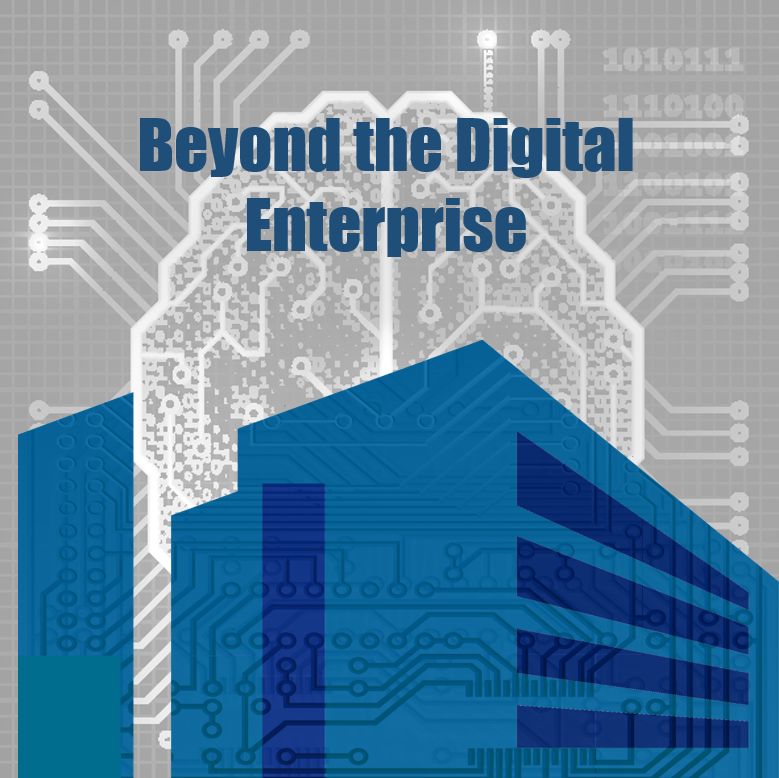Many, if not most, business analysts agree that companies organized around industrial age business models are unlikely to survive if they fail to transform themselves into digital enterprises. Kevin Kelly (@kevin2kelly), founding Executive Editor of Wired magazine, believes going digital doesn’t go far enough. He tweeted, “In the very near future you will cognify everything in your life that is already electrified.” He is referring to a growing field of artificial intelligence (AI) known as cognitive computing. “Cognitive technology has been getting a lot of attention of late,” writes Shailendra Kumar, a partner and Asia Pacific distribution Leader for IBM Cognitive Solutions, “and it’s no wonder. Cognitive technology will soon impact practically everything, and it already provides glimpses of a future that we have probably not yet dreamt of.”[1] So what is cognitive computing? “When most people think about artificial intelligence and cognitive computing,” writes Scott Crowder, CTO and VP for Technical Strategy at IBM Systems, “they think of futuristic technological landscapes overrun with evil robots. But a growing number of business and IT leaders are beginning to grasp how cognitive computing is radically reshaping the present IT landscape. This next wave of information technology is giving businesses the ability to outthink their competition and giving society the ability to solve some of our most pressing problems.”[2] Since a number of approaches and technologies are found under the cognitive computing tent, there is no single definition for what constitutes cognitive. I define cognitive computing as the combination of semantic intelligence (machine learning and natural language processing) and computational intelligence (advance mathematics). The Enterra Solutions® entry in the cognitive computing field is the Enterra Enterprise Cognitive System™ (ECS) — a system that can Sense, Think, Act, and Learn®.
Analysts from Deloitte note, “Cognitive technologies can enable computers to complete tasks that usually require a human’s cognitive or perceptual skills. That is why cognitive technologies are making inroads in business, complementing and in some cases replacing human intelligence.”[3] Executives of leading software companies have certainly taken notice of cognitive technologies. Deloitte reports, “Of the 100 largest enterprise software companies in 2015, 64 were integrating cognitive capabilities into their product offerings. That number is expected to rise to 80 in 2016.” Kevin L. Jackson asserts that cognitive computing is one of the most important trends of the digital era. He writes, “Coined as ‘Cognitive Business’ this trend can deliver quantum level improvement to just about any industry vertical.”[4] He offers a few examples of how cognitive computing systems can be used:
- Using highly automated and economic cloud infrastructure to deliver proactive and predictive monitoring and threat interception in cybersecurity;
- Leveraging cloud computing device independence to enable real-time social media analytics that coordinate delivery of context driven information and commercial offers across multiple marketing channels;
- Establishing connectivity across over 6.4 billion sensors so that analytics and cognitive computing programs can provide actionable insight from real-time and historic data; and
- Hybrid Cloud data architectures that use cognitive computing capabilities to maintain content traceability and lifecycle management to enable the auditable management of licenses, terms of use, and changes to third-party data.
Jackson adds, “Cognitive systems understand by interaction, reason by generating recommendations and hypotheses, and learn from human experts and data. Since they never stop learning they also never stop providing business value.” Jacques Pavlenyi (@mediamutt), a Senior Portfolio Marketing Strategist at IBM, argues that cognitive technologies can help companies deal with digital overload. “Cognitive computing and artificial intelligence,” he writes, “will play a bigger part in moving us from our current productivity trap to becoming truly effective.”[5] He continues:
Applying cognitive to collaboration offers three opportunities to break through the digital channel sprawl and digital information overload:
- Every aspect of human interactions can be digitized. Not only can we can digitize documents and transactions, but also the rich entirety of our content, conversations and workflows. We can capture context, location and time across all the different channels we use.
- Data can now be understood and analyzed. Cognitive systems can understand unstructured data that was previously unreadable — including audio, video, images and conversations. It can also apply analytics to not just see and predict patterns, but to also develop hypotheses from all that activity.
- Cognitive systems learn over time – and learn voraciously. These systems get better over time. And they can learn deeply and continuously. When applied to collaboration tools, they learn to interact with us in a more human way, helping to reduce interruptions, noise and lack of focus. They understand and adjust to our specific intent, and dynamically react to our needs.
Because cognitive technologies have so much to offer businesses, Technavio analysts forecast the Americas’ smart machines market will grow at a CAGR of nearly 15% over the next four years.[6] David Powers, professor of computer science at Flinders University, told Beverly Head (@BeverleyHead), “What sets the present generation of cognitive computing solutions apart from the past is the advent of hugely more powerful and cost-effective computer systems that can process information at high speed.”[7] Steve Sammartino (@sammartino), an author and futurist, explained to Head that cognitive technologies will become even more important as the Internet of Things (IoT) matures. “Cognitive computing is like the brain and nervous system that sits on top of the internet of things,” he told her, “because everything with a power supply and a communications connection collects data from its surroundings and uploads it to the internet, where it can be interpreted by a cognitive platform.” Head notes, “Gartner has described cognitive computing as a ‘disruptive platform with a shift more impactful than many other technologies in the past 20 years’.” Kumar predicts, “No industry will remain untouched by cognitive technology.” Richard Wilkins (@Richard_Wilkins), CTO (ASEAN) at IBM, told Nurdianah Md Nur (@n_dianah), “Organisations today need to be cognitive businesses, which leverage cognitive computing to gain insights — or even automate insights — to make better and informed decisions.”
It should come as no surprise that people selling cognitive computing solutions are optimistic about the benefits cognitive technologies can provide organizations. For those buying solutions, a little skepticism is always a healthy thing. But even if helping companies with better and informed decisions was the only thing that cognitive computing systems could do for businesses, optimism about cognitive would be justified. As Bain analysts, Michael C. Mankins and Lori Sherer (@lorisherer) note, decision making is one of the most important aspects of any business. “The best way to understand any company’s operations,” they write, “is to view them as a series of decisions.”[9] Proponents of cognitive computing, like me, know that cognitive technologies can do much more than assist decision makers. In fact, uses for cognitive computing technologies will only be limited by our imaginations. That’s why organizations need to continue their digital transformation efforts and become cognitive enterprises.
Footnotes
[1] Shailendra Kumar, “Cognitive Retail: The Future Is Here,” Information Management, 30 June 2016.
[2] Scott Crowder, “Building the Foundation of the Cognitive Computing Era,” Data Informed, 26 April 2016.
[3] Deloitte, “Cognitive Technologies: A Smart Enterprise Bet,” The Wall Street Journal, 5 May 2016.
[4] Kevin L. Jackson, “Cognitive Business: When Cloud and Cognitive Computing Merge,” Cloud Musings, 20 July 2016.
[5] Jacques Pavlenyi, “Cognitive Computing Helps You Escape the Productivity Trap,” CMS Wire, 16 May 2016.
[6] Technavio, “Smart Machines Market in the Americas 2016-2020,” Research MOZ, May 2016.
[7] Beverly Head, “Why cognitive computing is a growth engine for businesses,” The Australian Financial Review Magazine, 8 July 2016.
[8] Nurdianah Md Nur, “Succeeding in a cognitive era,” MIS Asia, 2 June 2016.
[9] Michael C. Mankins and Lori Sherer, “Creating value through advanced analytics,” Bain Brief, 11 February 2015.





